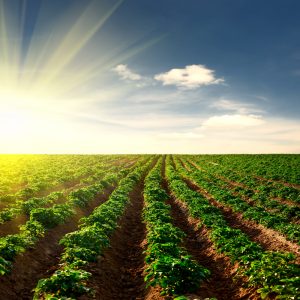There is a big push on nutrition in our nation right now, so it’s important that farmers are able to diversify to meet the demands of those seeking healthier diets.
Wendy Mussoline, a University of Florida multi-county agriculture Extension agent for Flagler and Putnam counties, works with farmers who want to incorporate new crops into their production systems.
The market demand for potatoes has significantly gone down, hurting potato farmers in Florida. The decline could be due to people not wanting to eat as many potato chips. Another contributing factor is that potatoes grown in the Midwest have improved cultivars with a longer shelf life.
“It’s better for the southern potato farmers to diversify their crops into other crops that can be grown here in the south that cannot be grown in the Midwest,” says Mussoline. “Some of those crops are cauliflower, broccoli and sweet potatoes … Sweet potatoes really need to be grown in tropical to sub-tropical regions like the Southeast. It’s really important that we think about crops that we can grow that other parts of the country cannot grow to increase our market potential.”
Crop diversification can contribute to economic sustainability for farmers, she says.
The University of Florida’s Extension center in Hastings researches different alternative crops. “We grow them first for 3 to 4 years,” explains Mussoline. “When farmers come to us wanting something new to grow, we have suggestions for them.”
Artichokes are an example of a crop being trialed in the Hastings area. “This is our second year growing artichokes,” says Mussoline. “We can tell farmers how to plant them, the type of plastic to use, the amendments that need to be added to that crop and fertilization rates. We have all of the details to help them know how to grow the different crops … in our area because not all regions are the same.” Because there are so many environmental factors, she advises growers to partner with their Extension office when growing an alternative crop.
Farmers have to deal with variables every single day, and adding a new crop is a new variable. “I think farmers are extraordinarily innovative and they adapt very well to change — changing weather patterns and changing conditions — and I think that farmers have the ability to diversify their crops very easily,” Mussoline concludes.
Share this Post










